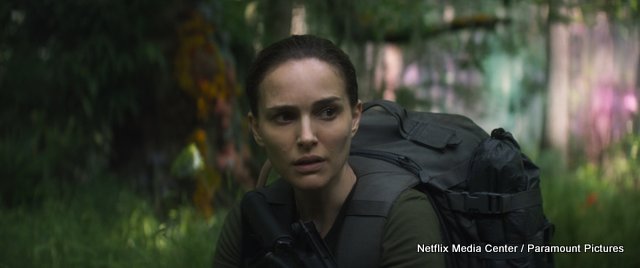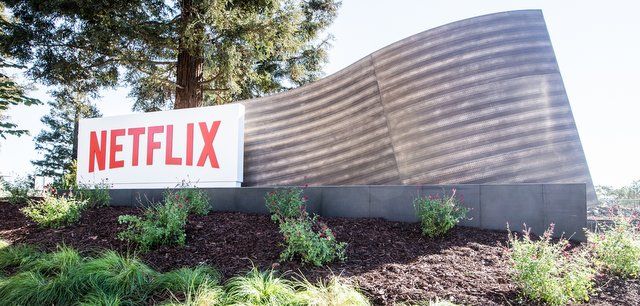Netflix is slowly becoming a powerful creator of both original shows and movies, but is it cinema's saviour or is the movie going experience ready to die? By Patrick Sullivan.
During an ITV interview on 20th March 2018, Steven Spielberg kickstarted the whole Netflix debate. Not the debate we all have with ourselves at the end of an episode whether to watch another, but the one surrounding awards recognition. Should films produced or distributed on Netflix be considered at film festivals, such as the iconic events in Cannes and Venice, or awards ceremonies, such as the Golden Globes or the Oscars? According to Spielberg, they categorically should not. ‘Once you commit to a television format, you’re a TV movie,’ he claims. ‘You, certainly, if it’s a good show, deserve an Emmy, but not an Oscar.’
The influence of the veteran director’s comments cannot be underestimated. Spielberg was largely responsible for saving cinema from being defeated by colour television in the 1970s and 80s with a run of big blockbusters: Jaws (1975), Raiders of the Lost Ark (1981), and* E.T. the Extra Terrestrial* (1982). Since then, he has become the most marketable name in movie history and his works have raked in over $4 billion at the box office alone.
The success of Netflix and Amazon Prime in developing their on-demand TV subscription services, and their subsequent intrusion on the exclusive club of international film production and distribution, is supposedly the second mooted apocalypse to traditional cinema. Spielberg’s mastery was what enticed the general public from the comfort of their living rooms forty years ago, and he shuns the new market players with his belief in the rearguard that is the traditional cinematic experience.
The state of big budget cinema, however, is as such: superhero movies (Marvel or DC), live remakes of Disney classics, and other safe investments including Spielberg himself and the product placement goldmine that is his latest work, Ready Player One. As the man himself puts it, ‘the studios would rather make a guaranteed box office hit than take a chance on smaller films and those smaller films are now going to Amazon, Hulu, and Netflix.’ In the top twenty worldwide box office films of 2017, the only non-franchise films were Dunkirk and The Boss Baby, languishing in 18th and 19th place. Traditional cinema has already been lost to the mire of indistinguishable, familiar formulas.
There is no doubt that, hidden from the public eye, more cutting edge films are being made than ever, and aspiring, independent filmmakers are able to realise their visions with the increased accessibility of equipment - even iPhones are being used to shoot breakout works such as Tangerine and Unsane. Many film festivals globally are offering a platform and financial reward for risk-taking artists. At Sundance in January 2017, Netflix uncovered their first diamond ignored by traditional distributors: Mudbound. Dee Rees’ film received rapturous applause from all its audiences at Sundance, only to receive pitifully small bids in the coming days due to concern following the relative failure of the previous year’s acclaimed race drama, The Birth of a Nation.
‘Once you commit to a television format, you’re a TV movie,’ Speilberg claims. ‘You, certainly, if it’s a good show, deserve an Emmy, but not an Oscar.’
On the final day of bidding, Netflix stepped in with a bid of $12.5 million, slightly more than the film’s $12 million budget, and arranged a pioneering week-long limited cinema release in New York and LA in order to enter the Oscar race. It became the first Netflix feature to be nominated for an Oscar with recognition for Best Adapted Screenplay (Rees), Best Supporting Actress (M.J. Blige), Cinematography (Rachel Morrison), and Best Original Song (Blige).
Without Netflix, this impactful film that showcased the high skill levels of a diverse cast crew, may have been listed as an undistributed masterpiece, never to see screens (small or large) across the world. The natural criticism of Netflix, Amazon, and the like - and that of Spielberg’s - is that they deprive audiences of the big screen, cinematic experience. However, when the Hollywood elite are depriving us of all but their samey, soulless, regurgitated blockbusters, I’m just happy to watch Baumbach’s latest screwball dramedy (The Meyerowitz Stories, produced by Netflix) or Mudbound, even if it is at home.
An appeasing solution to all could be the limited release of streaming films in cinemas. However, while limited releases are usually restricted to a handful of cinemas, why not limit the releases in time and still have the films available nationwide for a week prior to landing on streaming services? That way, us uber-keen, up-to-date, cinephiles can catch it on the big screen, and then Netflix still profits from good word-of-mouth with others flocking to watch it on their streaming services. For many, the quality of home audio-visual equipment is improving with a decreasing hit on your wallet, and while the cinema has always been my second home, the industry has to concede that outreach comes first and foremost, and the income can come from many different avenues.
Currently, the investors in the film industry are driven purely by box office income. Their fear of financial failure is a factor in the lack of diversity, leading producers to only green light a project when it is associated with a historically successful name, usually older, white men such as Spielberg. Film captures the essence of generations and moments in time, and, currently, there is a blockage that is keeping cinema stuck in an age of nostalgia for the days of the original Star Wars and Beauty of the Beast, not only noticeable in remakes, but also in the excessive referencing of 20th century pop culture in Ready Player One.
The streaming giants, Netflix and Amazon, have a clear disregard for box office because, obviously, their financial income comes from a loyal customer base paying monthly to watch quality content, including original TV and film, as well as a back catalogue of previously released films and boxsets. Therefore, once a project has been financed, the filmmaking crew are tasked with producing high quality art, rather than safe, mass-appealing moneymakers.
Annihilation (2018) unfortunately never graced cinemas outside of North America and China because of a creative argument between the filmmakers and financiers. Early test screenings in summer 2017 produced mixed feedback about the film, with audience members claiming the film was ‘too intellectual’ and ‘complicated’, and that Natalie Portman’s lead character, Lena, was ‘too unsympathetic’. Producer and co-financier, David Ellison advised changes based on the reviews in order to have a wider appeal, changes the distributor, Paramount Pictures, later backed.
However, the development of the film was left at an impasse when director and writer Alex Garland and executive producer Scott Rudin refused to change the final cut. Crucially, Rudin had the final sign-off on the film’s content in the contract, and Paramount subsequently sold the international rights to Netflix for around $55 million. Over a month after release, Annihilation has a fresh rating of 87% on review website Rotten Tomatoes, and a metascore of 79% on IMDB.
It brings to light the conflict of interest that is contemporary filmmaking at the highest level: box office takings versus artistic integrity. With Annihilation, Rudin and Garland were forced into an unwanted compromise by sacrificing the worldwide reception the film deserved. The vivid production design and daring directorial choices would have been a striking spectacle in the sensory bubble of a cinema screen, however it could prove to be a pioneering victory for artistry and the streaming services which support them. The legacy of Annihilation is protected and the version of the film Garland so strongly defended remains there to be watched, and that is all down to the existence of Netflix and their willingness to back risky, ambitious, and challenging material.

With regards to awards such as the Globes and the Oscars, Annihilation will certainly be a contender for Production Design, Visual Effects, and could earn nominations for Garland and Portman in the writing or acting categories. While Cannes have set up measures to discount streaming movies by only including films shown in French cinemas, as long as a movie meets the requirements of a category and is directly comparable to more traditional releases then it needs to be considered for awards to remain relevant to the industry. Netflix, therefore, has a more concrete reason to show their best films in theatres for at least a limited run to ensure its support for aspiring filmmakers.
once a project has been financed (by Netflix), the filmmaking crew are tasked with producing high quality art, rather than safe, mass-appealing moneymakers.
Spielberg’s early blockbusters in the 1970s and 80s were seen as the first renaissance of cinema, when it overcame colour television with bold, unmissable, action packed crowd pleasers on the big screen. The second renaissance for cinema may require a new economic outlook to protect the big screen from succumbing to a corporate void. Hopefully Netflix or Amazon can step up by continuing to fund upcoming filmmakers while considering giving their loyal customers the chance to see their latest releases at local theatres.
Featured photo credit: Netflix Media Center / Netflix









